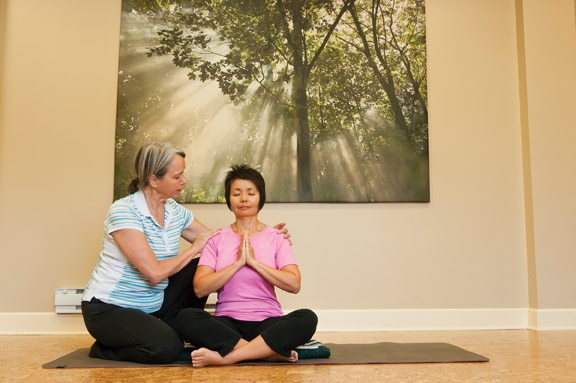
Open Arms: Ottawa Integrative Cancer Care
There are over 100 different kinds of cancers that affect humans. In the on-going battle to fight, prevent and cure this disease, different practices, methods and medicines have surfaced, all with the intention of eradicating cancer.
In 2012, Ottawa had the highest cancer rates in all of Ontario. In turn, Cancer Care Ontario also listed Ottawa as having the best cancer survival rates in Ontario.
According to the Canadian Cancer Society (CCS), the disease is responsible for almost 30 per cent of all deaths in Canada. The CCS had projected that, in 2013, on average 500 people would be diagnosed with cancer every day and 200 people would die from cancer every day. Although cancer diagnosis rates are increasing, so are the survival rates. Following the CCS’s 2006-2008 estimates, 63 per cent of Canadians are expected to survive for five or more years after their diagnosis.
Most cancers do not have a single, known cause but are a result of a multitude of different risk factors, some uncontrollable like genetics. Sometimes, cancer is found even when there are no distinguishable risk factors. Risk assessment is tailored to every individual, involving information such as age, health, family history and lifestyle. Knowing and understanding one’s exposure to risk factors can help in the making of personal-health choices that may reduce the risk of developing cancer.
As cancer continues to be the leading cause of death in Canada, many rallied behind the creation of the Ottawa Integrative Cancer Centre (OICC).
The OICC opened in 2011 as a research and new cancer care centre. The goal is prevention and improving the lives of those who are living with cancer. The OICC works collabouratively with other health professionals and practices, integrating the use of naturopathic and other compatible whole-person treatments with standard cancer care to reach their goals. This is the first integrative cancer care and research centre in Central and Eastern Canada.
The OICC is different in that it includes complementary and natural clinical care that does not interfere with chemotherapy or radiation treatment a patient may be undergoing. These additional prac-tices are meant to help the body handle the side-effects presented with traditional treatments. This program acts as a bridge between conventional therapies and other evidence-based complementary medicines that often patients aren’t aware of or aren’t offered to choose from in a combined manner.

The care offered fits each patient’s individual needs. The complementary practices include naturopathic and integrative medical care, exercise and physiotherapy, nutritional counselling, massage and lymphedema therapy among others. (Lymphedema occurs when lymphatic fluid builds up in the soft tissue of the body, usually the arm or leg.)
The OICC continues research in integrative oncology, partnering with programs such as the Integrative Canadian Oncology (ICON) Research Initiative, Complementary Medicine Education and Outcomes (CAMEO) Program and with researchers at the Ottawa Hospital Research Institute.
Education is also an important element of the OICC’s work. The centre offers residency training and student internships and continues the learning process for medical professionals.
Even before its grand opening, the OICC grabbed the attention of influential community members and other Canadians. Present for the ribbon-cutting ceremony were local NDP MP Paul Dewar, Olympic Silver Medalist and Naturopathic Doctor Rachelle Viinberg, Dr. Colin Carrie, MP and Parliamentary Secretary to the Minister of Health. Musician Murray Foster of Great Big Sea wrote and performed Open Arms.
“It was a privilege to write Open Arms and to dedicate it to the patients of the OICC,” Murray Foster said. “Having seen the facility, it seems to me to be long overdue. (OICC executive director) Dugald Seely and his team have a passion for the OICC that is contagious.”
The music and lyrics of Open Arms convey the overwhelmed feelings of someone having been diagnosed with cancer, lost and out of control, and searching for a place of healing where they can find care for their whole being.
The OICC accepts different methods of complementary and conventional cancer care. By connecting the two, a unique approach is taken that many see as long overdue. Cancer patients and survivors have found the care provided at the OICC to be helpful and encouraging in their encounters with cancer.








